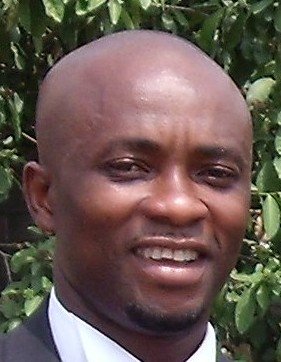“Nobody can prepare for the harmattan by drinking plenty of water.” – Ghanaian proverb
As we aspire to lift our society from the peripherals of poverty to a self-sufficient one, we need to question ourselves about some of our attitudinal antics. Fundamental, we need to question which of our current attitudinal practices actually promote the vision we are aspiring for.
We cannot keep living the same old way and except to make any significant progress. In the world of Albert Einstein, such an attitude would be labelled as insanity.
All around us, the cost of living keeps increasing at astronomical rates. We are retiring early because of obsolete skills, whiles life expectancy has increase because of improved health care.
The dynamics of the world in our era means the way of living is radically different compared to a few decades ago. It is nothing like the world our fathers nurtured us in. The global familiarities and challenges have evolved. Sadly, our systems, structures and attitudes are rooted in an era that has seen better days.
The surprising majority amongst us are living as our fathers did. Whiles the change around us has mostly been fueled by technological inventiveness, we continue to operate the ‘whom-you-know’ and ‘pull-him-down’ ingenuity. History has always taught us that when the skills and abilities of the day do not connect with the definitions of reality, it impinges negatively on productivity.
As a society, we need a new dose of disposition; namely innovativeness and creativity; and a holistic appreciation of diversity to tackle the wind that change is heaving upon us. We need to appreciate the change that change is evolving into; and position ourselves to harness its fruits. We need individuals and groups to know what is important for today and learn the essentials for tomorrow as well. We need a strategy that is sustainable not only from the economical, technological and environmental perspectives, but culturally as well. In a nutshell we need to rethink the way we educate ourselves, both formally and informally.
Trends over the centuries have shown that much of the energy that drives change is generated from brain power. From our local economy to the global economy, intelligently innovative individuals and groups have led the present charge of changes we thrive in.
The buck does not stop there, a highly skilled workforce is further needed to work within the present arrangement of events in order for growth to thrive. And to top it up, as the global economy reinvents itself in short spans of life, due to the changes that are always changing. We therefore need to necessarily and continually equip ourselves with skills and capabilities to be able to fully harness whatever change will spew at us.
Whatever it is that you do, we all have a personal stake in re-organising ourselves as a society starting with the ethos of “harnessing the future today.” What we need to appreciate now is that in today’s global economy, there are no secured futures.
One whiff of change can toss the economy inside out and change lives in directions we have never imagined. That is why we need to take a second look at how we are educating ourselves and reform it to equip our citizens with skills and capabilities for the present and the future.
Very often, when we talk of visions and aspirations for our society, few of us think of continuous learning as the main course. Yes, we do mention education in the formal space, but nothing is said about continuous learning and the systems that would ensure that. The spate of change now, coupled with the anticipated change of tomorrow, means that we should develop our skills and talents to be ready to harness not only the opportunities that come along with change, but also that we should become the actual change agents. That is the best means by which we can achieve any vision we set for ourselves. Otherwise, our national vision will become an antiquated strategy beautifully penned and on sitting on the shelf.
Change is always a blossoming opportunity for continuous learning. As society becomes technologically enhanced, our systems for learning should also be enhanced to encourage citizens to equip themselves with needed skills. This is because the experiences that come with change demand that individuals and groups learn new ways of living in order to make the most out of the change. As a developing society, we deserve a relevant, modern, customized continuous learning culture that ensures that all of us, especially our children, are 21st century savvy and ready for whatever is coming next.
We need to rethink the importance of continuous learning is, and how it can empower us to take advantage of the changing realities of the global economy and demographics, the innovative technologies, and our environment. It is time for our thinking to catch up with a technologically enhanced society. And this call is especially for the working class.
_________________________________________________________________
Kodwo Brumpon is an executive coach at Polygon Oval, a forward-thinking Pan African management consultancy and social impact firm driven by data analytics, with a focus on understanding the extraordinary potential and needs of organisations and businesses to help them cultivate synergies, that catapults into their strategic growth, and certifies their sustainability.
Comments, suggestions, and requests for talks and training should be sent to him at [email protected]










